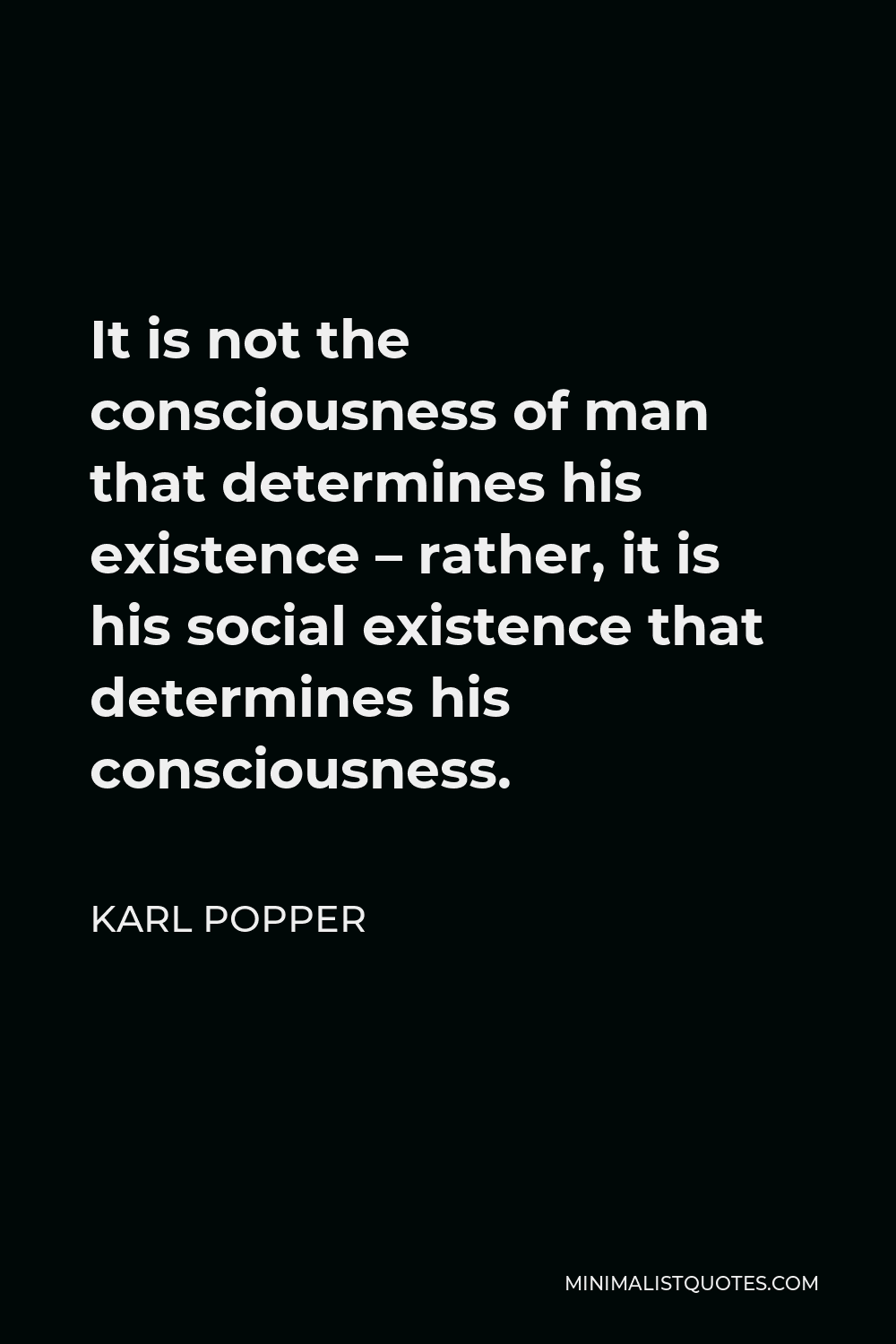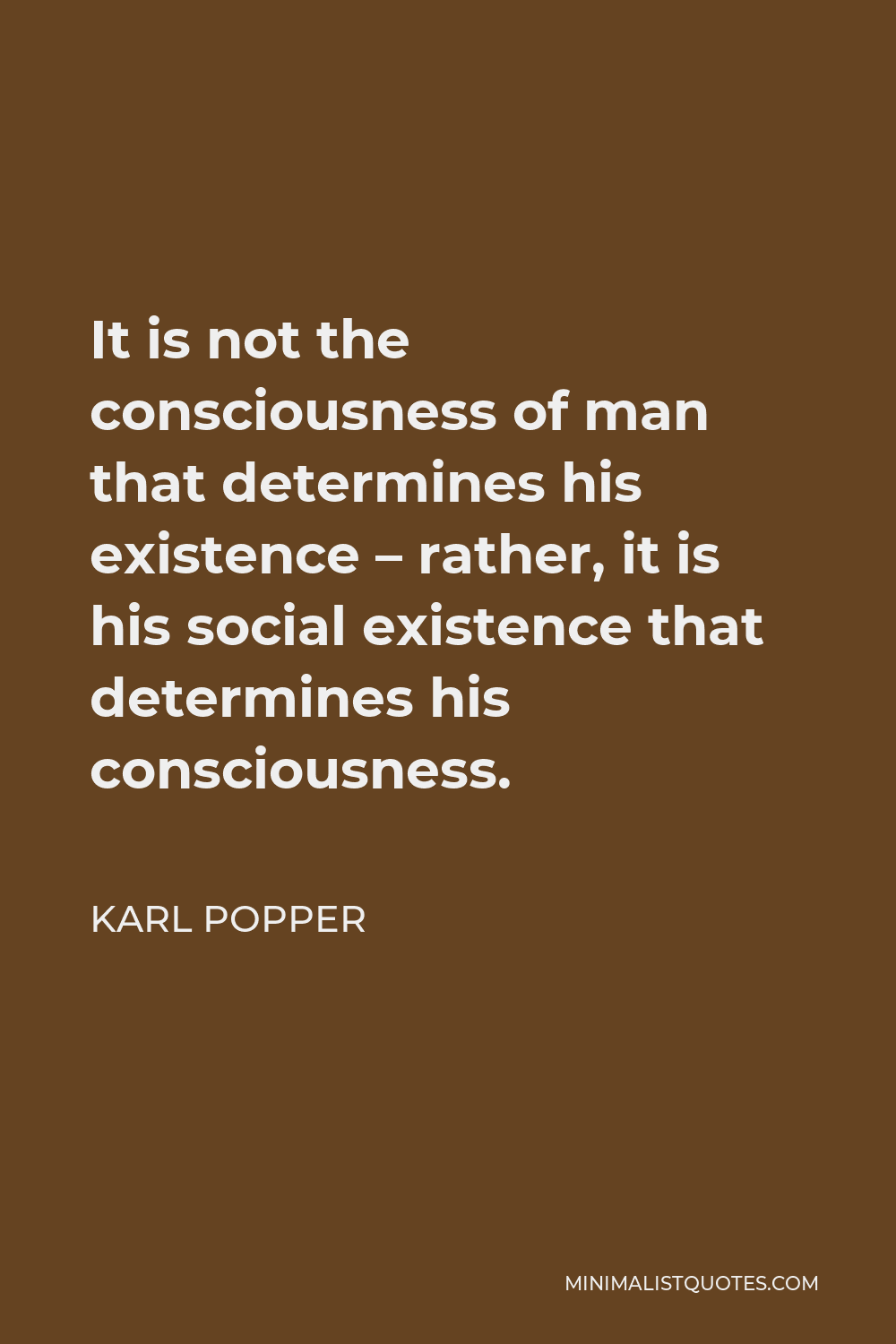The future depends on ourselves, and we do not depend on any historical necessity.
KARL POPPERIt is not the consciousness of man that determines his existence – rather, it is his social existence that determines his consciousness.
More Karl Popper Quotes
-





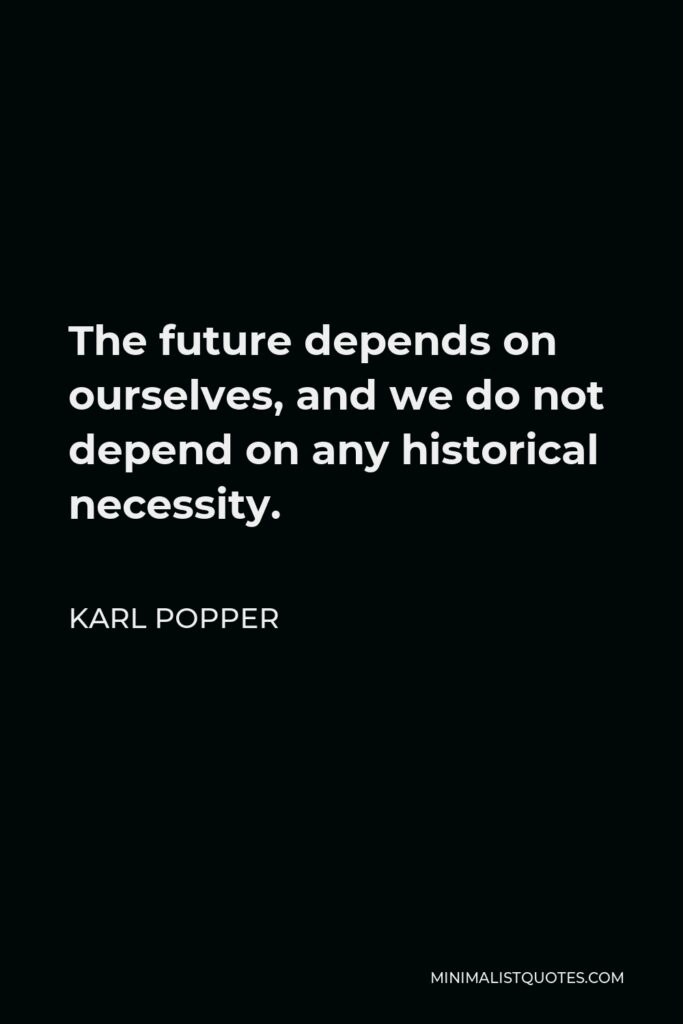

-





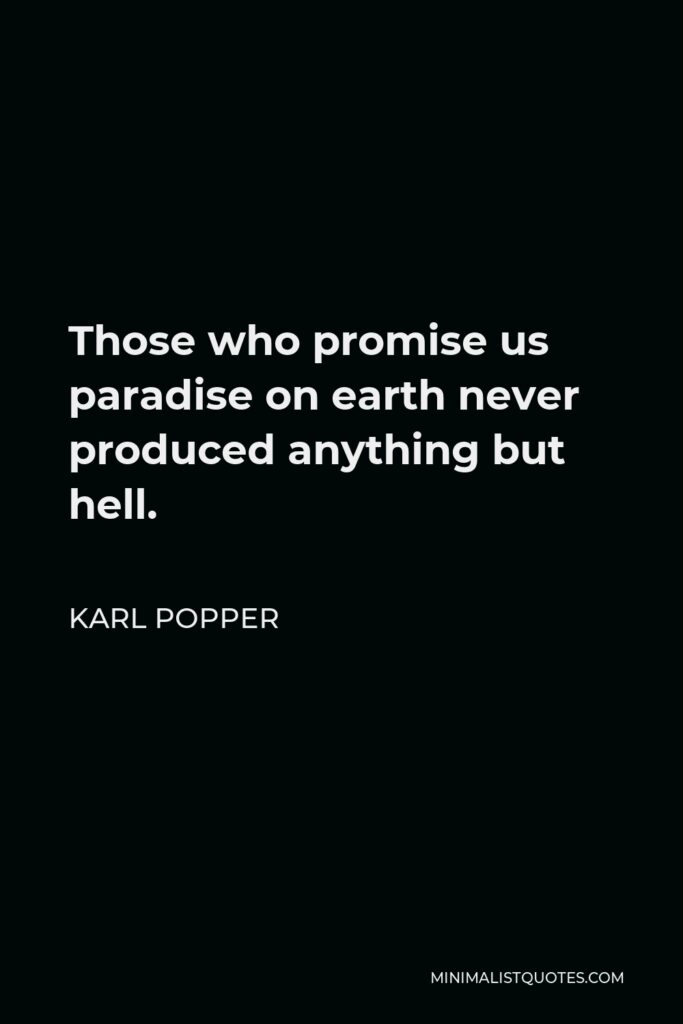

Those who promise us paradise on earth never produced anything but hell.
KARL POPPER -







We must plan for freedom, and not only for security, if for no other reason than only freedom can make security more secure.
KARL POPPER -





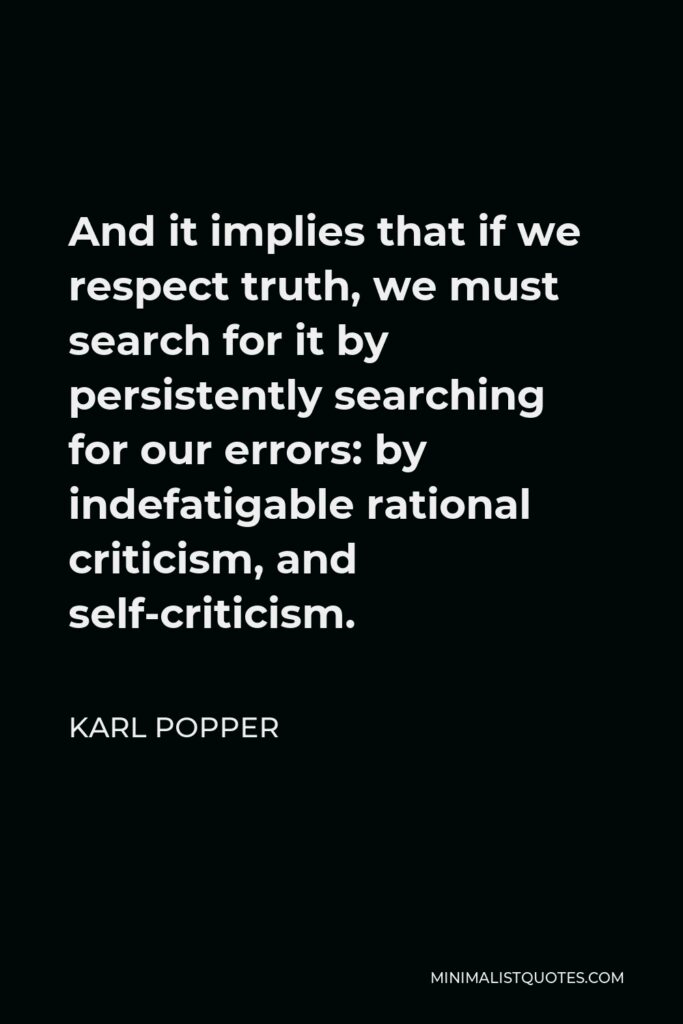

And it implies that if we respect truth, we must search for it by persistently searching for our errors: by indefatigable rational criticism, and self-criticism.
KARL POPPER -







If we are not prepared to defend a tolerant society against the onslaught of the intolerant, then the tolerant will be destroyed, and tolerance with them.
KARL POPPER -





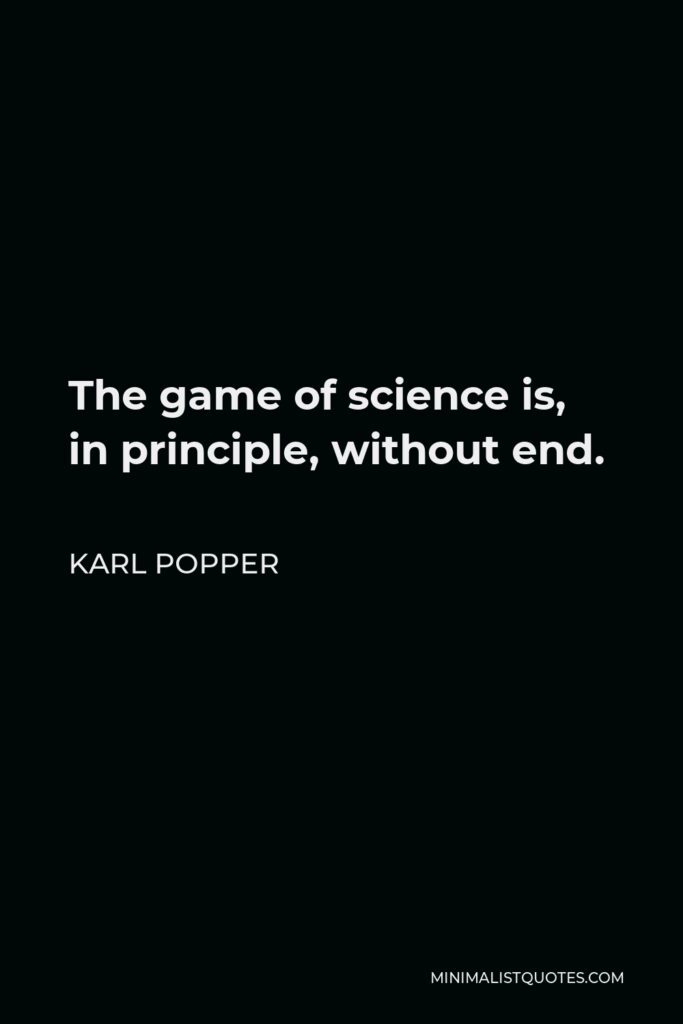

The game of science is, in principle, without end.
KARL POPPER -





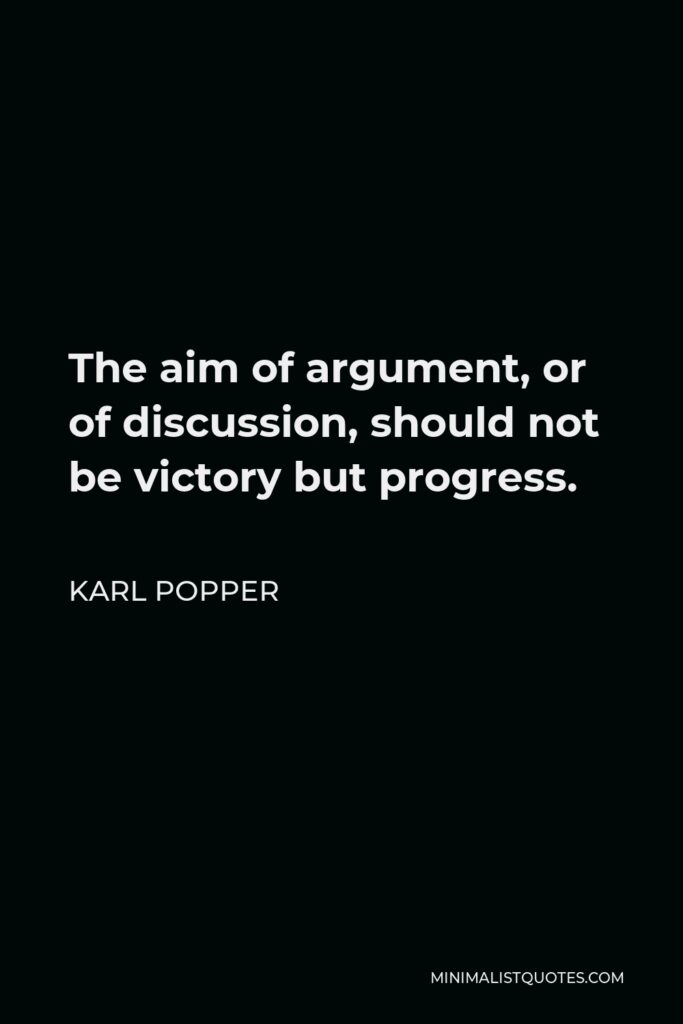

The aim of argument, or of discussion, should not be victory but progress.
KARL POPPER -





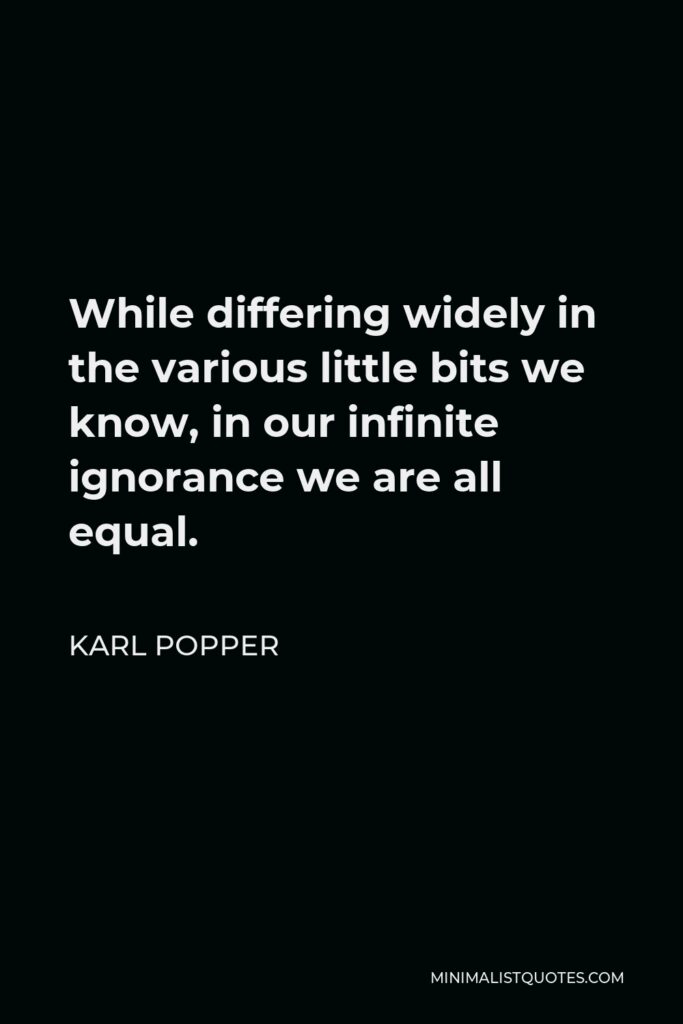

While differing widely in the various little bits we know, in our infinite ignorance we are all equal.
KARL POPPER -





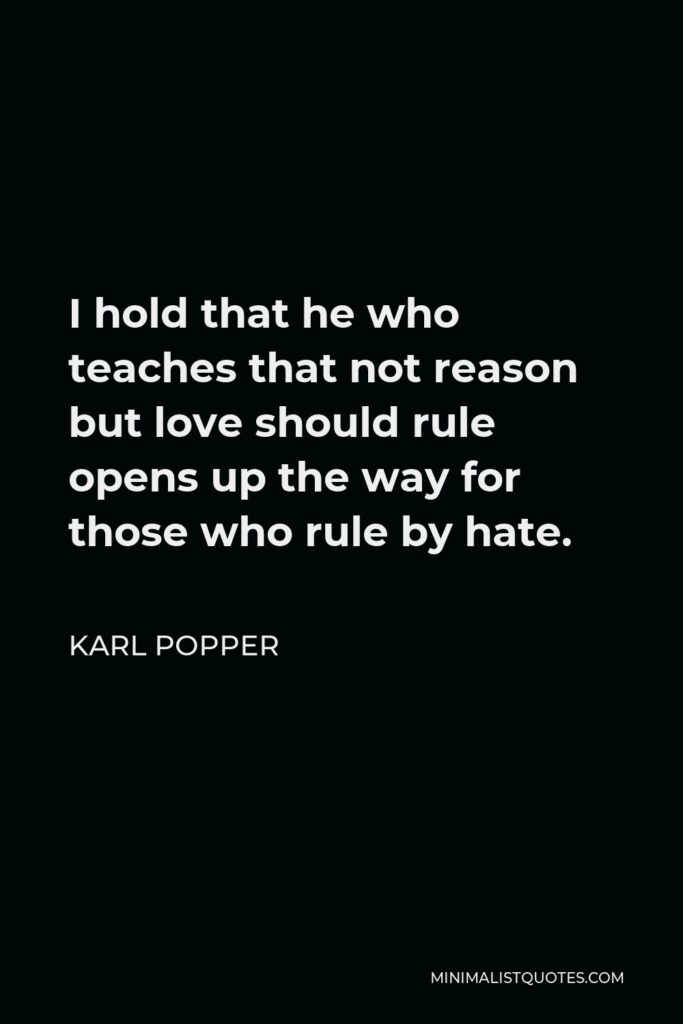

I hold that he who teaches that not reason but love should rule opens up the way for those who rule by hate.
KARL POPPER -





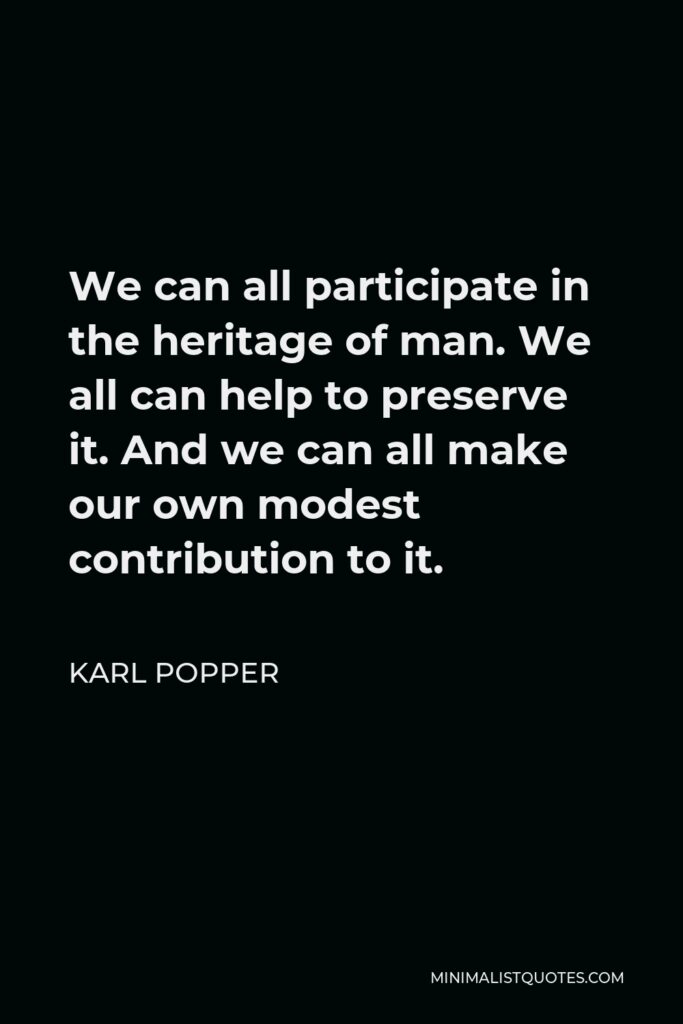

We can all participate in the heritage of man. We all can help to preserve it. And we can all make our own modest contribution to it.
KARL POPPER -





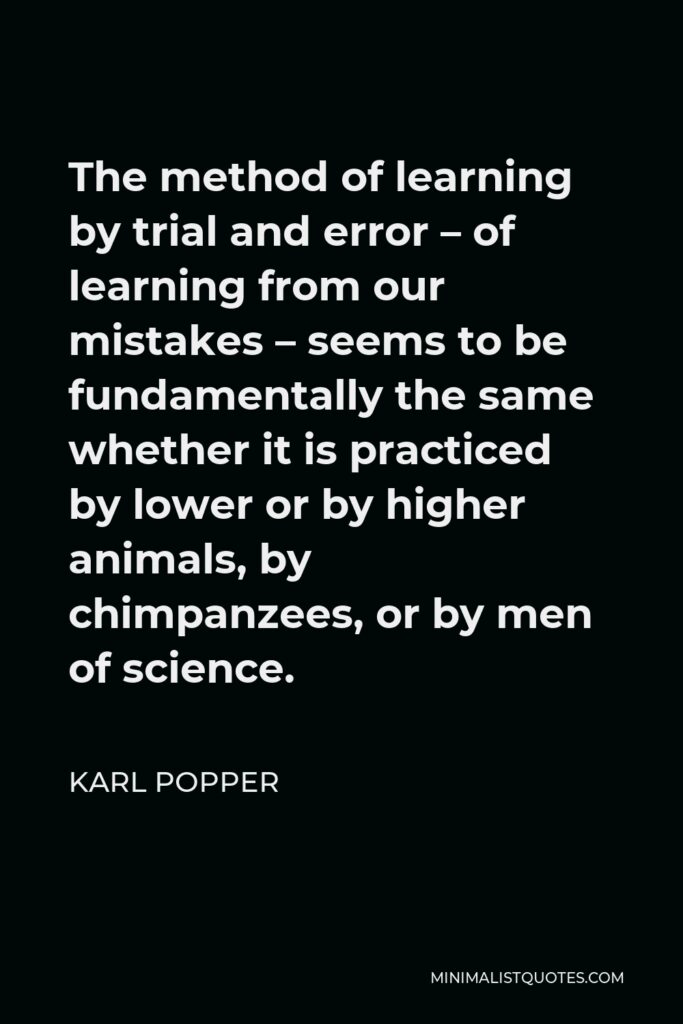

The method of learning by trial and error – of learning from our mistakes – seems to be fundamentally the same whether it is practiced by lower or by higher animals, by chimpanzees, or by men of science.
KARL POPPER -





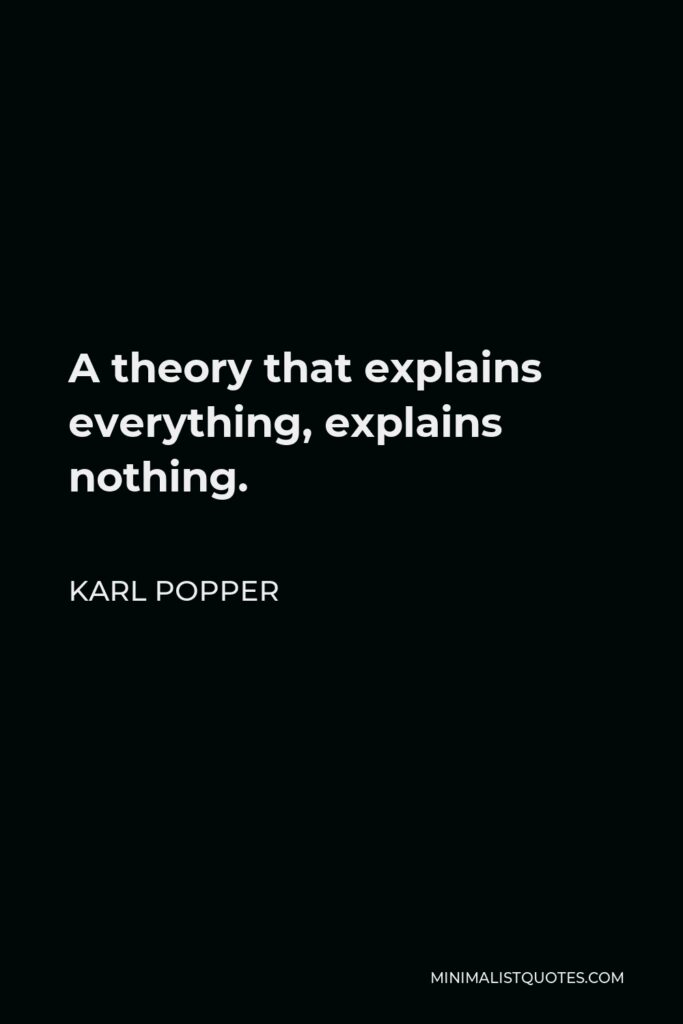

A theory that explains everything, explains nothing.
KARL POPPER -





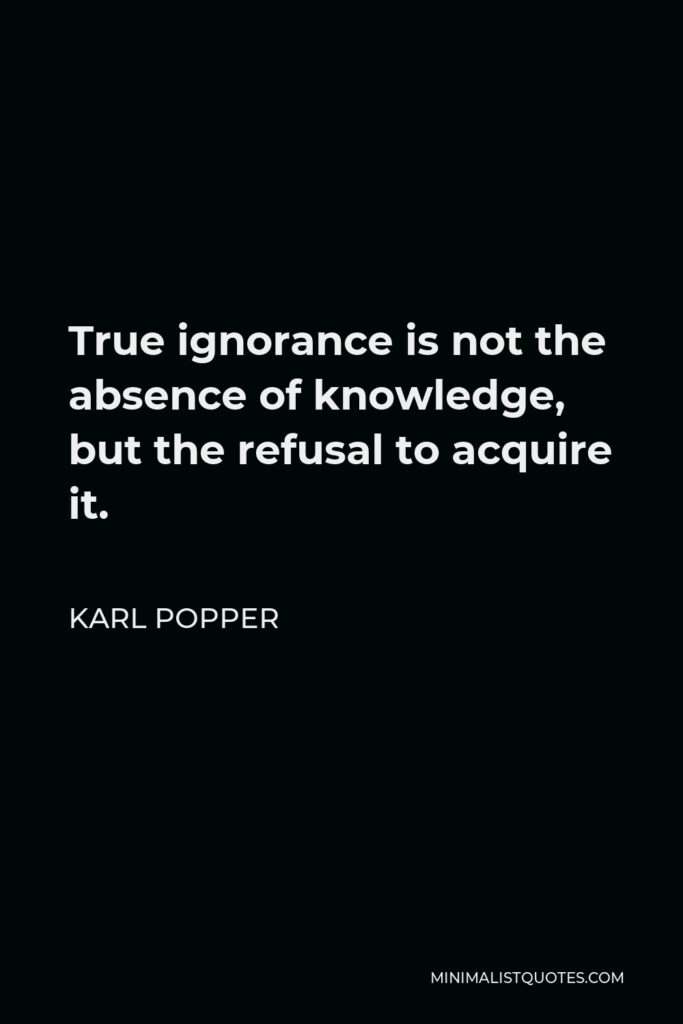

True ignorance is not the absence of knowledge, but the refusal to acquire it.
KARL POPPER -





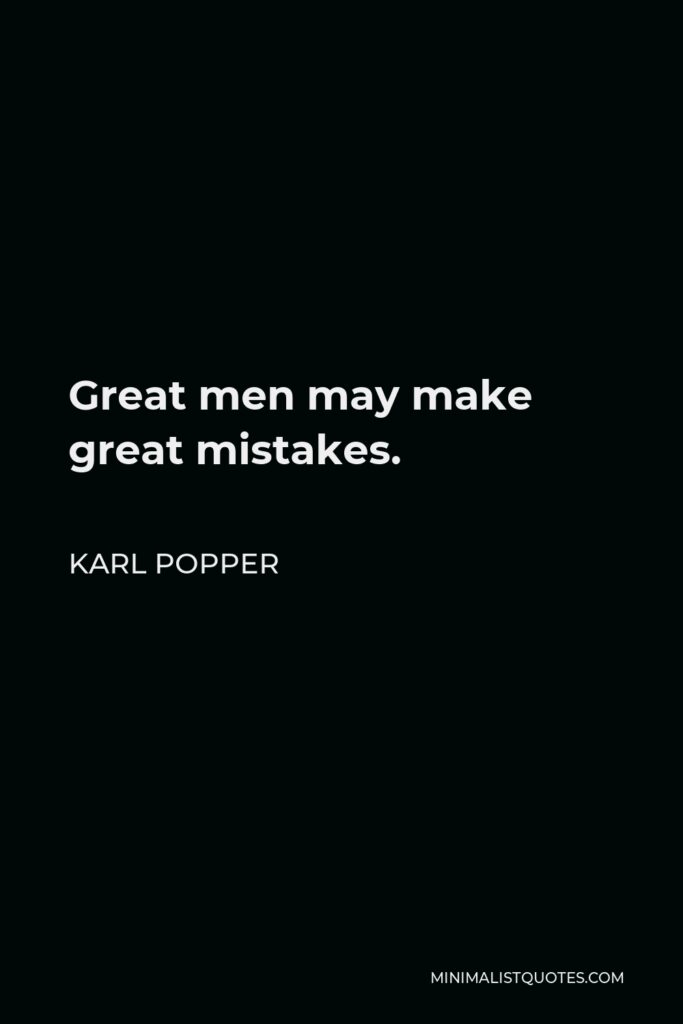

Great men may make great mistakes.
KARL POPPER -





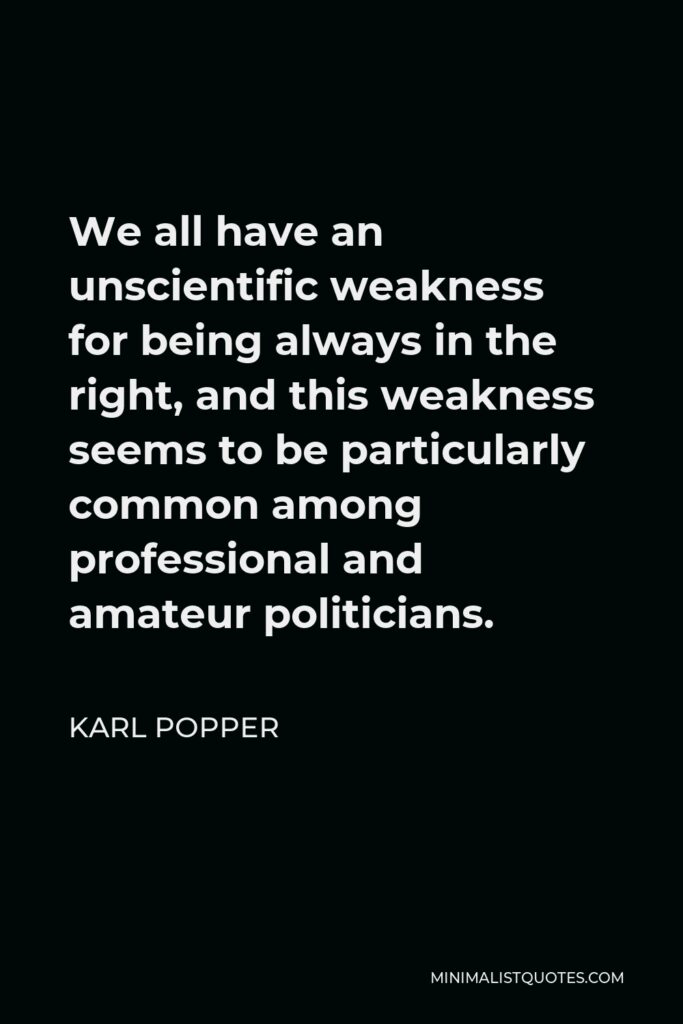

We all have an unscientific weakness for being always in the right, and this weakness seems to be particularly common among professional and amateur politicians.
KARL POPPER -





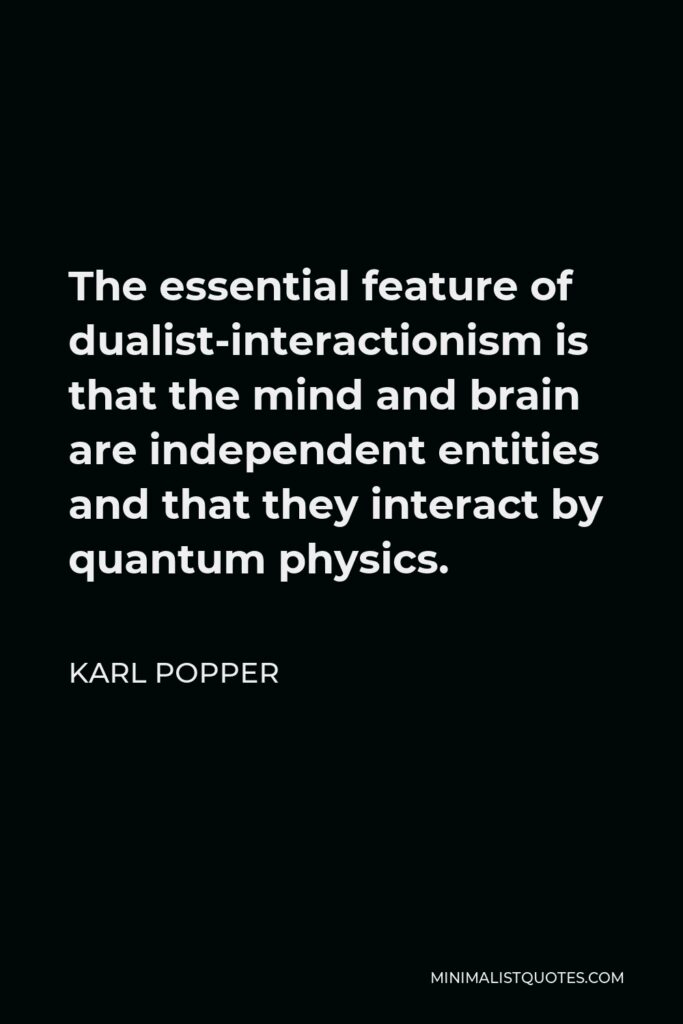

The essential feature of dualist-interactionism is that the mind and brain are independent entities and that they interact by quantum physics.
KARL POPPER
